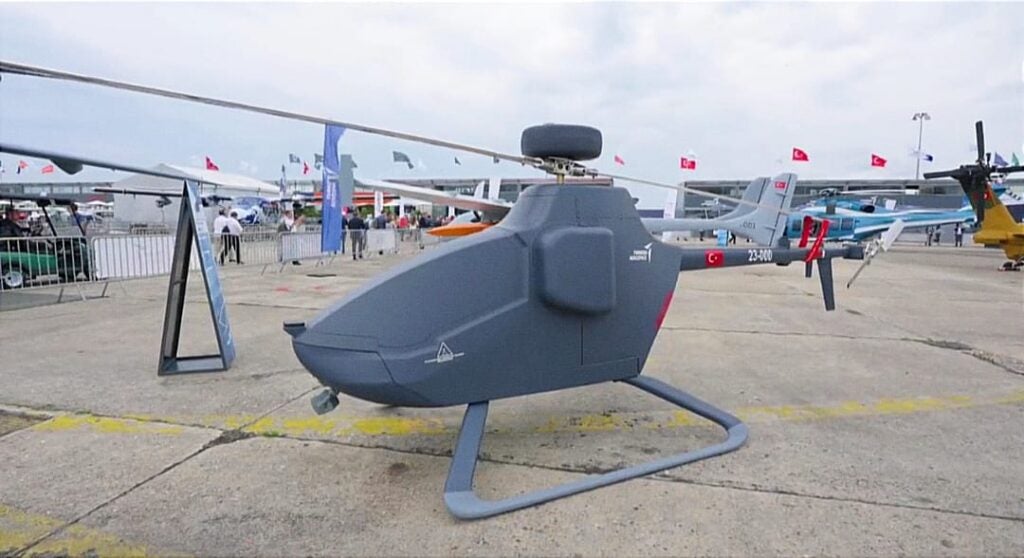Turkish Aerospace Industries (TAI) Unveils Its New Cargo Drone At The Paris Air Show
Turkish Aerospace Industries (TAI), which has recently focused on intermediate solutions for unmanned systems, unveiled for the first time at the Paris Air Show a rotary-wing cargo unmanned aerial vehicle (UAV) on which it has been working for some time.
The Turkish Defense Industry Agency (SSB) originally proposed a project for the procurement of Vertical Take-off and Landing Cargo UAV Systems in a tender notice in 2018. In a social media post he made in 2020, İsmail Demir, the head of the defense industry at the time, stated that the project assessments were completed and announced that a contract was signed with Turkish Aerospace Industries (TAI) for the Vertical Take-off and Landing Cargo UAV Project.
TAI developed the Cargo UAV, which has a rotary wing structure, to meet the Turkish Armed Forces’ logistics support needs in mountainous terrains by quickly and safely resupplying personnel with supplies such as weapons, ammunition, medical supplies, and equipment. This system is expected to play an important role in reducing costs while eliminating the risk of life for the pilot and crew for the Turkish Armed Forces, which currently conducts all such operations with standard-sized helicopters.
According to TAI the vehicle has a maximum take-off weight of 275 kilograms and a length of 6.5 meters and a width of 1.7 meters. The drone, which can fly autonomously as well as take off and land autonomously, is powered by a two-stroke engine. With its water and crash resistant cargo compartment, the vehicle can carry a payload of 80 kilograms for one hour and a payload of 50 kilograms for three hours. Furthermore, the vehicle’s function may differ depending on the payload equipment, such as a camera, radar, ammunition, radio transfer station, or base station.
TAI UAV Systems Deputy General Manager Ömer Yıldız told Anadolu Agency that the company has begun flight tests and plans to make it available for delivery within two months. Ömer Yıldız also stated that after this product, the company will begin work on a more advanced version with a payload capacity of 250-300 kilograms, and that their goal is to make large helicopters unmanned.

